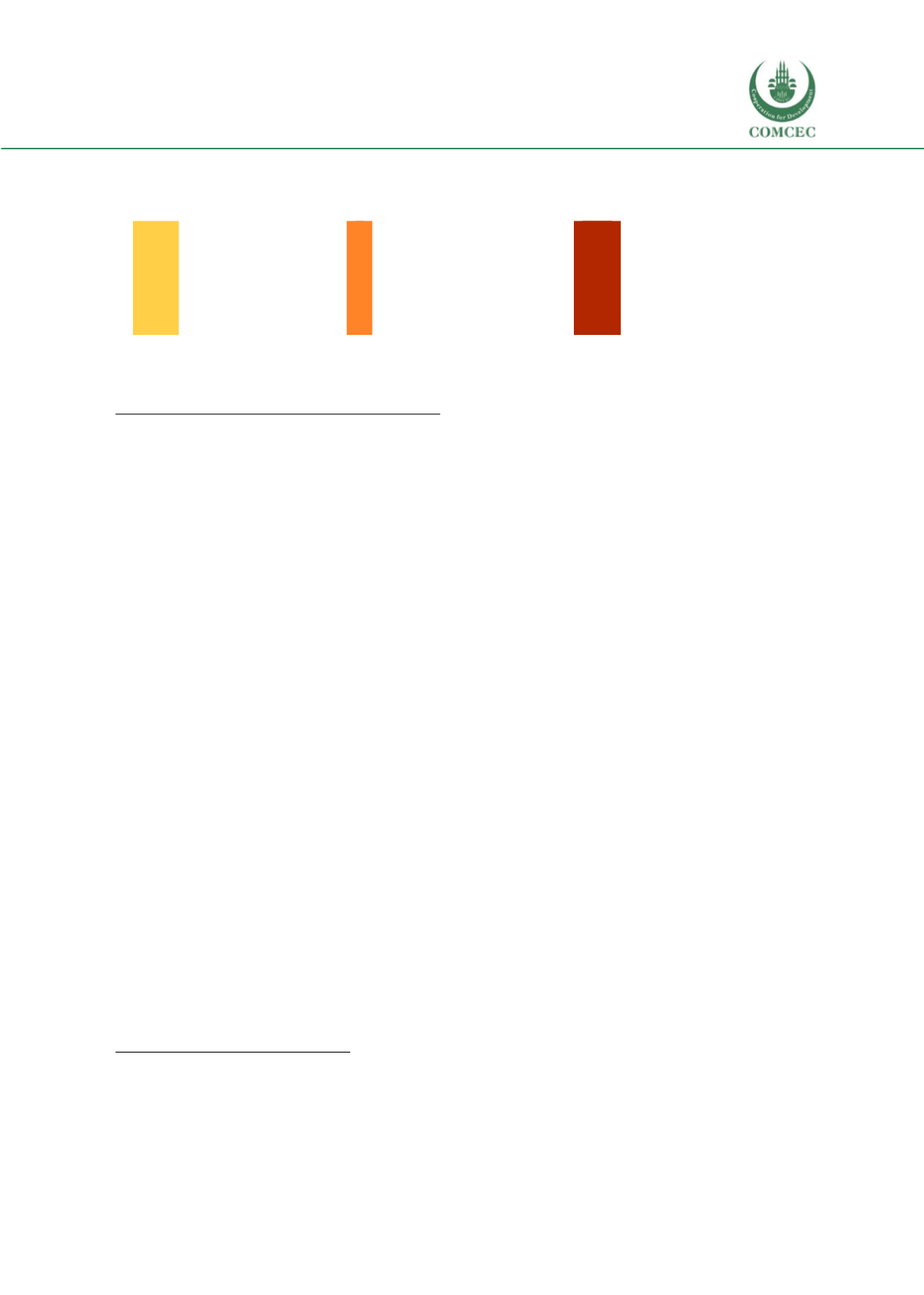

Education of Disadvantaged Children in OIC:
The Key to Escape from Poverty
247
location: Urban, region: Centre, household head’s education: Higher education, number of children in household: 1-2
children, wealth: Richest, gender: Male.
Legend
Marginal effect is
significant at least at
p<0.1 and the effect is
larger than or equal to 5.0
percent and smaller than
10.0 percent.
Marginal effect is significant at
least at p<0.1 and the effect is
larger than or equal to 10.0
percent and smaller than 20.0
percent.
Marginal effect is significant at
least at p<0.1 and the effect is
larger than or equal to 20.0
percent.
Policies and Programmes
Long-term strategic plans and Governance
As a resource scarce country, Jordan has prioritized education based on the belief that
developing its human capital will assist achieving its economic and social development goals.
The country began a comprehensive review of its education system in the late 1980s
518
. Its
Educational Development Plan phase 1 ran from 1989-95 and was followed by phase 2 from
1996-2000. The Vision Forum for the Future of Education held in September 2002 formed the
basis for a new wave of reforms implemented through the Education Reform for the Knowledge
Economy (ERfKE) framework with phase 1 running from 2003-2008 and phase 2 from 2009-
2016
519
. The ERfKE set up an extensive and inclusive framework based on several interrelated
components and the evaluation of the ERfKE I set the basis for ERfKE II. The ERfKE components
520
aimed at:
1.
Creating a National School-based Development System with enhanced roles for
directorates and schools in terms of planning, performance management and
development with participation of the local community. (Governance)
2.
Reforming Monitoring and Evaluation and Organizational Development to increase
quality education outcomes at the school level by moving towards performance-based
management of financial and human resources. (Governance)
3.
Strengthening Teaching and Learning by reforming teacher policies/professional
development as well as updating the curriculum, assessment and learning resources
(Quality)
4.
Developing Special Focus Programs on Early Childhood Development, Vocation Education
and Special Education (Governance and Quality)
5.
Improving the Physical Learning Environments (Quality)
The focus on these components would be addressing many of the governance and quality
barriers/challenges listed in section 3. However, while progress in each of these areas has
occurred, the implementation was far from complete and was hindered, amongst other reasons,
518
International Bureau of UNESCO (2006)
http://www.ibe.unesco.org/Countries/WDE/2006/ARAB_STATES/Jordan/Jordan.pdf519
International Bureau of UNESCO (2006)
520
International Bureau of UNESCO (2006)
















